The Australian Cattle Dog, known for its agility, intelligence, and robust health, requires a diet that sustains its high energy levels and supports its overall health. This comprehensive guide provides valuable insights into creating the ideal diet for Australian Cattle Dogs.
Understanding the Nutritional Needs of Australian Cattle Dogs
Australian Cattle Dogs are high-energy working dogs that require a diet rich in proteins, fats, and carbohydrates. Protein is vital for muscle maintenance, fats provide energy, and carbohydrates offer sustained energy for their active lifestyle. Ensuring the right balance of these nutrients is critical to keeping them healthy and active.
Our 5 Top Foods for Australian Cattle Dogs
The diets were selected by our founder Justin Palmer, a certified canine nutrition expert, specifically with Australian Cattle Dogs in mind:
| Food | Pros | Cons |
|---|---|---|
|
|
|
|
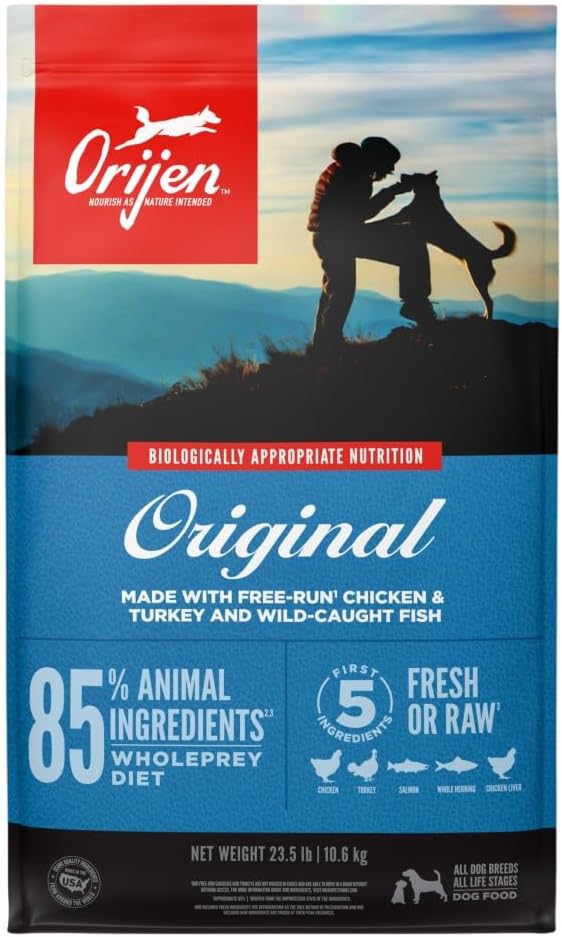
Check Today's Price on: |
|
|
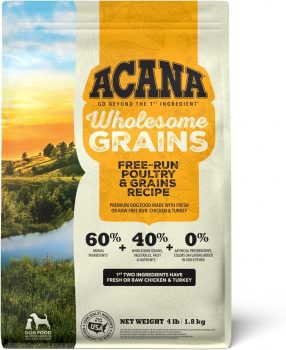
Check Today's Price on: |
|
|
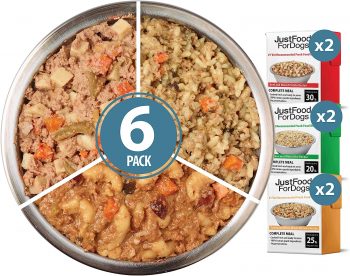
Check Today's Price on: |
|
|
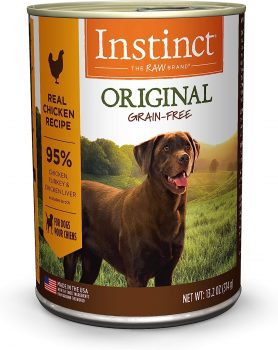
Check Today's Price on: |
|
|
Optimal Protein Sources for Australian Cattle Dogs
High-quality proteins are essential for Australian Cattle Dogs. Sources like chicken, beef, lamb, and fish are excellent options. It’s important to choose dog food, with a quality protein source as the first ingredient. This ensures the dog gets the amino acids necessary for muscle development and repair.
Balancing Fats and Carbohydrates in Their Diet
A balanced intake of fats and carbohydrates is crucial. Healthy fats, such as those in fish oil, can provide energy and support coat health. Carbohydrates should come from complex sources like whole grains, vegetables, and fruits, offering sustained energy and aiding digestion.
The Importance of Vitamins and Minerals
A diet rich in vitamins and minerals supports the overall health of Australian Cattle Dogs. Calcium and phosphorus are essential for bone health, while vitamins like A and E support vision and skin health. Ensure the dog food chosen is fortified with essential vitamins and minerals.
Meeting the Energy Needs of Active Dogs
Australian Cattle Dogs require a diet that meets their high-energy demands. This can be achieved by choosing dog foods for active or working breeds. The calorie content should match their daily activity level to prevent underfeeding or obesity.
Special Dietary Considerations for Puppies and Seniors
Puppy and senior Australian Cattle Dogs have different nutritional requirements. Puppies need more calories and nutrients for growth, while seniors may benefit from lower-calorie diets to maintain a healthy weight. Adjust the diet according to their life stage for optimal health.
Importance of Hydration for Australian Cattle Dogs
Hydration is crucial, especially for active breeds like the Australian Cattle Dog. Always provide access to fresh, clean water. Wet food can also contribute to their water intake, which is particularly beneficial in hot climates or dogs less inclined to drink water.
Recognizing and Managing Food Allergies
Australian Cattle Dogs can develop food allergies or sensitivities. Symptoms include itchy skin, ear infections, and digestive upset. If you suspect an allergy, consult a vet. An elimination diet may be necessary to identify the allergens.
Portion Control and Weight Management
Maintaining a healthy weight is essential for Australian Cattle Dogs. Overfeeding can lead to obesity, especially in less active dogs. Measure their food and adjust portions based on their activity level, age, and health condition. Regular vet check-ups can help monitor their weight.
Treats and Snacks: What’s Appropriate?
Treats should be given in moderation and should be healthy. Avoid high-calorie treats and human foods that are toxic to dogs. Treats should not exceed 10% of their daily calorie intake.
The Role of Diet in Preventing Common Health Issues
A balanced diet can help prevent common health issues in Australian Cattle Dogs, such as hip dysplasia and certain hereditary conditions. A diet rich in Omega-3 fatty acids can support joint health, while antioxidants can help boost the immune system.
Tailoring the Diet for Working Australian Cattle Dogs
Working Australian Cattle Dogs have higher energy requirements. Their diet may need higher calories and protein to sustain their activity levels. Monitor their condition and adjust their diet to ensure they get enough energy.
Avoiding Harmful Foods and Ingredients
Certain foods are harmful to Australian Cattle Dogs. Chocolate, grapes, onions, and foods with xylitol should be avoided. Always read the labels of commercial dog foods to ensure they do not contain harmful additives or fillers.
Providing a balanced diet tailored to the needs of your Australian Cattle Dog is crucial for their health and well-being. Regular consultations with a veterinarian can help ensure that their dietary needs are being met and can aid in making any necessary adjustments to their diet. With the proper nutrition, your Australian Cattle Dog will have the energy and vitality to live a long and healthy life.
What Health Issues Are Australian Cattle Dogs Prone To, and How Can a Proper Diet Help?
Australian Cattle Dogs are a robust and hardy breed known for their intelligence and high energy levels. However, like all breeds, they are prone to specific health issues. This comprehensive guide will explore common health concerns in Australian Cattle Dogs and how a proper diet can be crucial in prevention and management.
Hip Dysplasia in Australian Cattle Dogs: Dietary Management
Hip dysplasia, a common genetic condition in many dog breeds, including Australian Cattle Dogs, can lead to arthritis and mobility issues. A diet rich in Omega-3 fatty acids, found in fish oil, can help reduce inflammation and joint pain. Maintaining an ideal weight is also crucial, as excess weight can strain the joints.
Dealing with Progressive Retinal Atrophy: Nutritional Support
Progressive Retinal Atrophy (PRA) is an eye condition that can affect Australian Cattle Dogs, leading to eventual blindness. Antioxidants like Vitamin E and beta-carotene in carrots and other vegetables can support eye health. Ensuring a diet rich in these nutrients can be beneficial in slowing the progression of PRA.
Combatting Deafness with a Balanced Diet
While genetics play a significant role in the prevalence of deafness in Australian Cattle Dogs, a balanced diet can support overall ear health. Diets rich in antioxidants and anti-inflammatory ingredients can support the immune system and may help prevent infections that could lead to hearing loss.
The Role of Diet in Preventing Obesity
Australian Cattle Dogs are active and require a diet that matches their energy needs. However, overfeeding and a lack of exercise can lead to obesity, which can exacerbate health problems like joint issues and diabetes. A diet with appropriate calorie content and regular physical activity is essential for weight management.
Managing Allergies and Skin Conditions
Australian Cattle Dogs can suffer from allergies and skin conditions. A hypoallergenic diet, or a diet with novel protein sources, can help manage these conditions. Additionally, Omega-3 and Omega-6 fatty acids are beneficial for maintaining healthy skin and coat.
Importance of Dental Health: Diet’s Impact
Dental health is crucial for Australian Cattle Dogs. Chewing on hard kibble can help reduce plaque and tartar buildup. Special dental diets or treats can also be beneficial in maintaining good oral health and reducing the risk of dental diseases.
Addressing Digestive Issues with Proper Nutrition
Some Australian Cattle Dogs may experience digestive issues. Probiotics and easily digestible proteins can aid in gut health. Feeding a consistent, high-quality diet with limited ingredient formulas can help reduce the risk of gastrointestinal upset.
Preventing Heart Disease with a Heart-Healthy Diet
While not as common, Australian Cattle Dogs can be susceptible to heart conditions. A diet low in sodium and rich in Omega-3 fatty acids can support heart health. Regular veterinary check-ups are also crucial for early detection and management of heart issues.
Nutritional Needs for Active and Working Australian Cattle Dogs
Active and working Australian Cattle Dogs have higher energy and nutritional needs. Their diet may need higher calories and protein to sustain their activity levels. Monitor their condition and adjust their diet to ensure they get enough energy.
Senior Australian Cattle Dogs: Adjusting the Diet for Aging
As Australian Cattle Dogs age, their dietary needs change. Senior dogs may require diets lower in calories but higher in fiber, along with supplements like glucosamine for joint health. Regular vet check-ups can help determine the specific needs of aging dogs.
Conclusion: A Tailored Diet for a Healthy Australian Cattle Dog
In conclusion, while genetics play a significant role in the health of Australian Cattle Dogs, diet is a key factor in managing and preventing many health issues. A balanced diet, tailored to their needs and life stage, can significantly impact their overall health and well-being. Regular consultations with a veterinarian are essential to ensure that your Australian Cattle Dog maintains optimal health.
Frequently Asked Questions About Feeding Australian Cattle Dogs
1. What is the best dog food for Australian Cattle Dogs?
High-quality dog food rich in protein and has moderate fat and carbohydrate content is ideal for Australian Cattle Dogs. Look for food that lists a high-quality protein source, like chicken, beef, or fish, as the first ingredient. Choosing a formula appropriate for their age (puppy, adult, senior) and activity level is also essential.
2. How much should I feed my Australian Cattle Dog?
The amount of food you should feed your Australian Cattle Dog depends on their age, size, activity level, and metabolism. Generally, an adult Australian Cattle Dog requires about 1.5 to 2.5 cups of dry food per day, divided into two meals. However, this can vary, so it’s essential to consult with your vet for specific recommendations.
3. Can Australian Cattle Dogs eat grain-free diets?
Yes, Australian Cattle Dogs can eat grain-free diets, but it’s essential to ensure that the diet is well-balanced and meets all their nutritional needs. Grain-free diets are often chosen for dogs with allergies to grains or sensitivities. Always consult a veterinarian before significantly changing your dog’s diet.
4. How often should I feed my Australian Cattle Dog puppy?
Australian Cattle Dog puppies should be fed three to four times a day. As they age, you can gradually reduce the number of feedings to twice daily. Providing them with puppy-specific food that supports their growth and development is essential.
5. Are raw diets suitable for Australian Cattle Dogs?
Raw diets can be suitable for Australian Cattle Dogs, but ensuring that the diet is balanced and includes all necessary nutrients is essential. Raw diets should be prepared carefully to avoid bacterial contamination and nutritional imbalances. Consult with a veterinarian or a canine nutritionist before starting a raw diet.
6. What human foods are safe for Australian Cattle Dogs?
Australian Cattle Dogs can safely eat some human foods in moderation, such as lean meats, certain fruits (like apples and blueberries), and vegetables (like carrots and green beans). However, avoid giving them toxic foods like chocolate, grapes, onions, and garlic.
7. How can I tell if my Australian Cattle Dog is overweight?
Feel around their ribs and spine to determine if your Australian Cattle Dog is overweight. You should be able to feel the ribs without a thick layer of fat. Also, look for a well-defined waist when viewed from above and a tuck in the abdomen when viewed from the side.
8. What supplements should I add to my Australian Cattle Dog’s diet?
The need for supplements depends on your Australian Cattle Dog’s overall health and diet. Common supplements include fish oil for omega-3 fatty acids, glucosamine for joint health, and probiotics for digestive health. Always consult with a veterinarian before adding supplements to your dog’s diet.
9. Is it okay for Australian Cattle Dogs to have dairy products?
Some Australian Cattle Dogs can tolerate dairy products in small amounts, but many are lactose intolerant. If you give dairy, start with small amounts and watch for signs of digestive upset. Plain yogurt and cottage cheese are safer options as they contain less lactose.
10. How do I transition my Australian Cattle Dog to a new food?
To transition your Australian Cattle Dog to a new food, gradually mix the new food with the old over a period of 7-10 days, slowly increasing the amount of new food while decreasing the old. This gradual transition helps prevent digestive upset.
11. What are the signs of food allergies in Australian Cattle Dogs?
Signs of food allergies in Australian Cattle Dogs can include itchy skin, chronic ear infections, hair loss, excessive scratching, and gastrointestinal problems like diarrhea and vomiting. If you notice these symptoms, consult your veterinarian for a proper diagnosis and treatment plan.
12. Can Australian Cattle Dogs eat a vegetarian diet?
While Australian Cattle Dogs can technically survive on a vegetarian diet, it’s not ideal. They thrive on a diet that includes high-quality animal proteins. If considering a vegetarian diet for health or other reasons, consult with a vet or canine nutritionist to ensure all nutritional needs are met.
13. Should I feed my Australian Cattle Dog wet or dry food?
Both wet and dry foods have benefits for Australian Cattle Dogs. Dry food is good for dental health, while wet food can be more palatable and hydrating. Some owners choose to mix both. The best choice depends on your dog’s health needs, preferences, and lifestyle.
14. How can I prevent obesity in my Australian Cattle Dog?
Prevent obesity in your Australian Cattle Dog by maintaining a balanced diet with appropriate portions and ensuring regular exercise. Avoid overfeeding, and keep treats to a minimum. Regular check-ups with a vet can also help in managing a healthy weight.
15. What is the importance of water in my Australian Cattle Dog’s diet?
Water is essential for your Australian Cattle Dog’s overall health. Ensure they have constant access to fresh, clean water, as dehydration can lead to serious health issues. Active and working dogs require ample hydration to support their high energy levels.
 Check Today's Price on:
Check Today's Price on: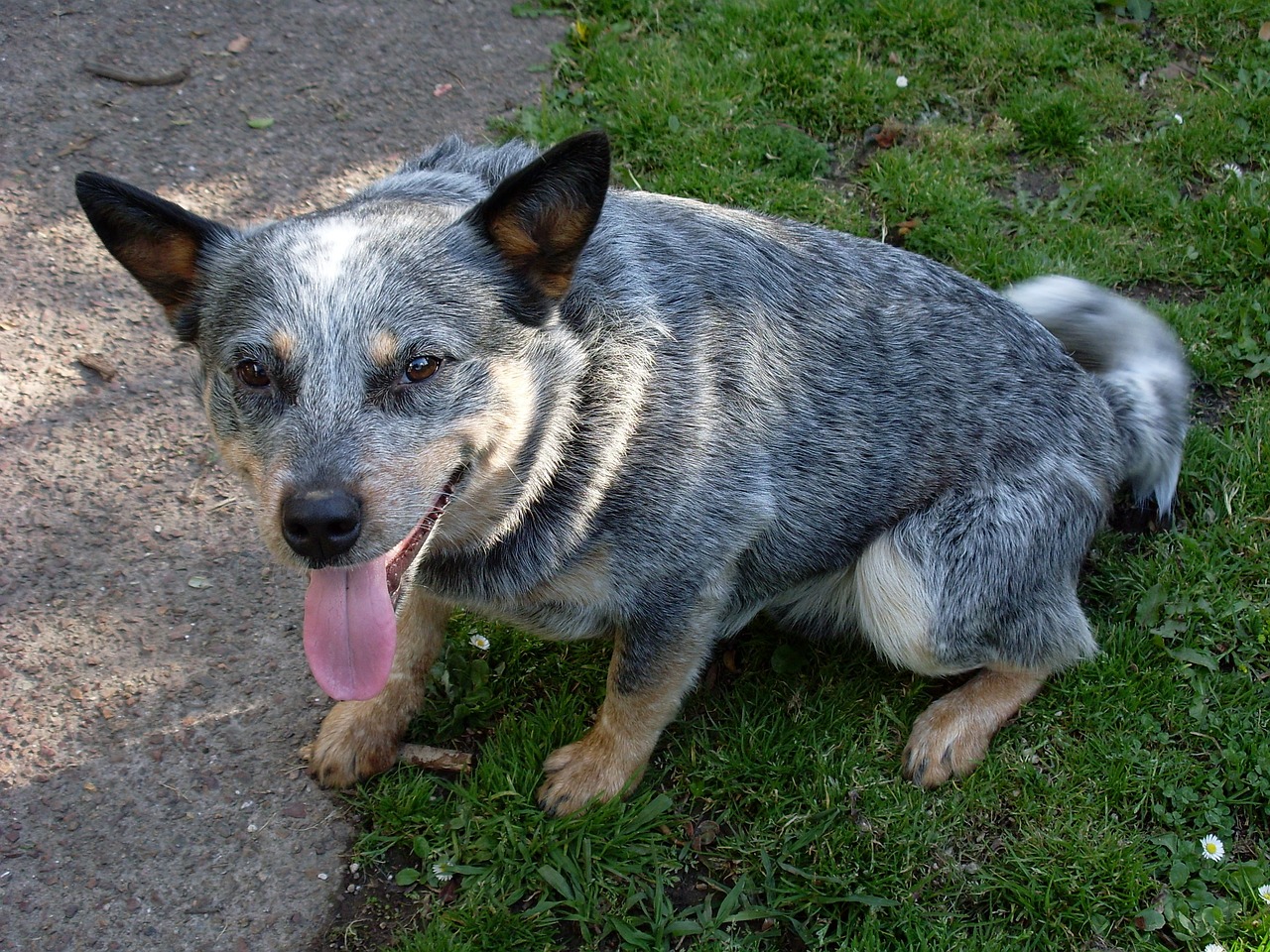
 Toledo, United States.
Toledo, United States.